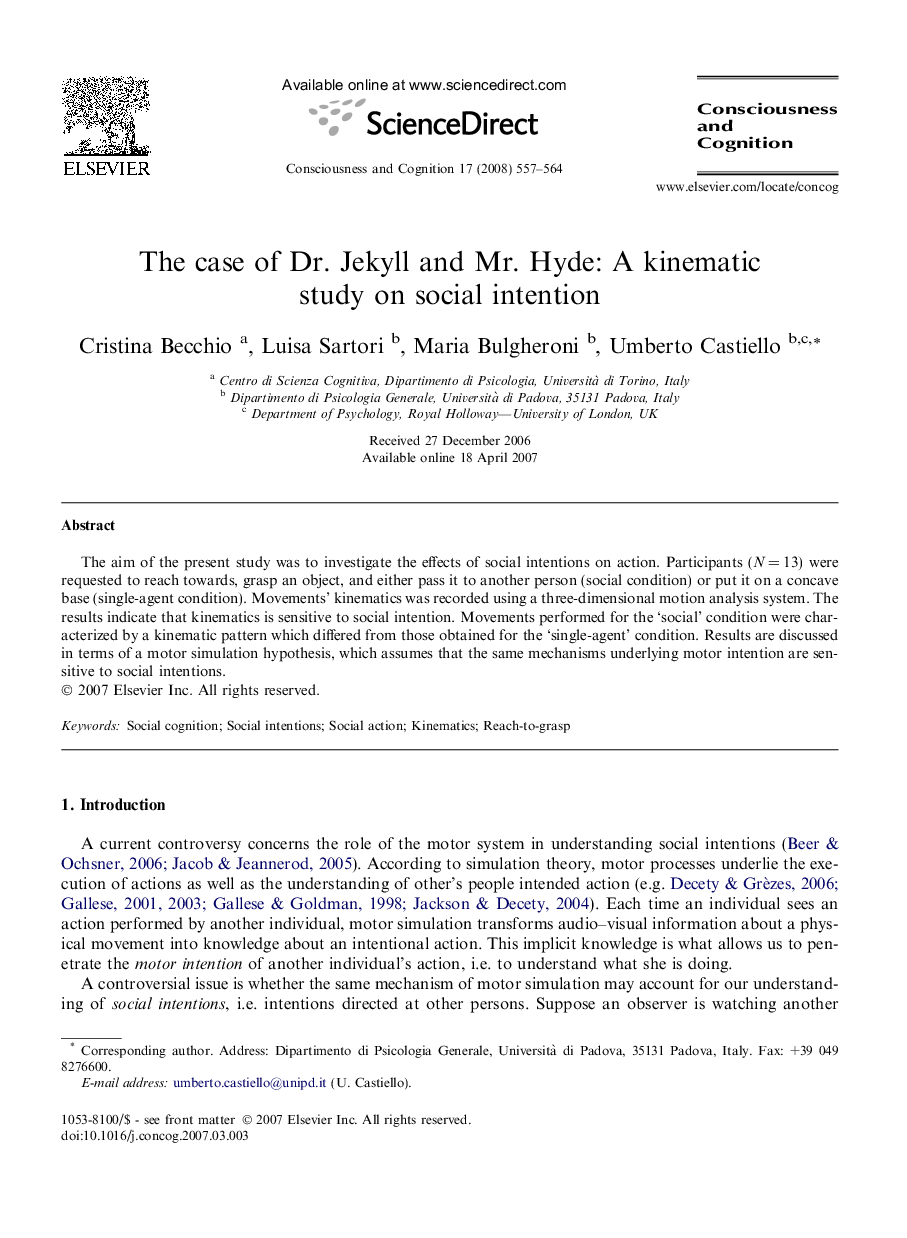| Article ID | Journal | Published Year | Pages | File Type |
|---|---|---|---|---|
| 928037 | Consciousness and Cognition | 2008 | 8 Pages |
The aim of the present study was to investigate the effects of social intentions on action. Participants (N = 13) were requested to reach towards, grasp an object, and either pass it to another person (social condition) or put it on a concave base (single-agent condition). Movements’ kinematics was recorded using a three-dimensional motion analysis system. The results indicate that kinematics is sensitive to social intention. Movements performed for the ‘social’ condition were characterized by a kinematic pattern which differed from those obtained for the ‘single-agent’ condition. Results are discussed in terms of a motor simulation hypothesis, which assumes that the same mechanisms underlying motor intention are sensitive to social intentions.
